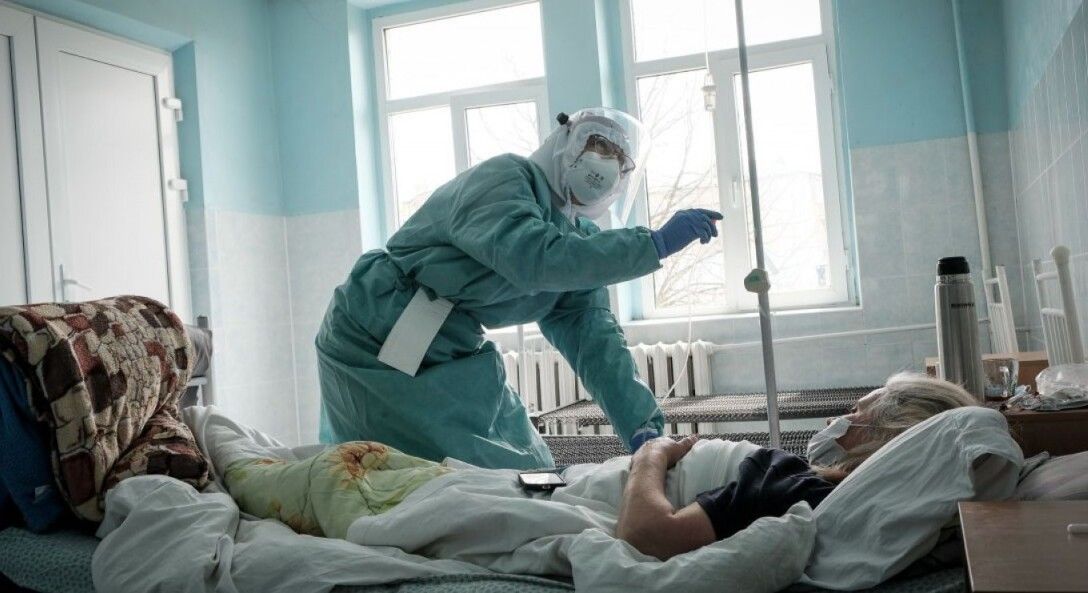WHO Regional Director for Europe, Hans Kluge, is surprised by the stability of Ukrainian health care. Despite the war, it continues to live and develop - and the whole world, in Kluge's opinion, should do everything to keep it that way.
In the "Okhmatdit" children's hospital in Kyiv, a little boy learned to walk again. At this advanced rehabilitation center serving children injured in the war in Ukraine, he received prosthetics. And with the support of a dedicated physical therapist and his mother, he walked slowly but purposefully down the hospital corridor with a determined face and eyes fixed on the floor.
Having witnessed this scene, which was both touching and inspiring, I once again marveled at the resilience of the Ukrainian health care system, which was damaged by the war , but is still standing on its feet.
And today, as we pass the two-year mark of this seemingly endless conflict , I continue to be amazed at how far the country has come — despite all the difficulties — in its pursuit of health for all.
Even before February 24, 2022, Ukraine began ambitious health care reforms — the most important requirement of the EU accession process. But when the war broke out, critical infrastructure across the country was destroyed. Hospitals, ambulances, generators, pharmacies... It was difficult, if at all possible, to provide medical services on or near the front lines.
And mass internal displacement only intensified the crisis.
However, recovering from the initial shock, Ukraine's healthcare system began to recover.
The World Health Organization (WHO) and other partners delivered essential items, including generators, ambulances, prefabricated emergency rooms, trauma kits and medicines, all generously funded by a number of public and private donors.
The government was determined not only to restore the health care system, but also to make it better. And the reform was resumed.
There is now a significant national mental health program in Ukraine, supported by First Lady Olena Zelenska and rapidly expanding. This is extremely important, as there are currently around 10 million people in Ukraine estimated to be at risk of or living with mental disorders, and almost 4 million people have moderate to severe symptoms.
Physical rehabilitation services are also being strengthened. Digital health technologies provide greater access to diagnosis and advice for those living near the front lines and in return areas, particularly for older people and people with chronic conditions.
Currently, fleets of specially equipped buses are plying the country loaded with essential vaccines for mumps, measles and rubella, even Covid-19, reaching the hardest to reach.
And remarkably, in 2023, Ukraine managed to stop the poliovirus outbreak that was first detected in October 2021, which is a commendable milestone in the face of war.
But we also have to admit that Ukraine's health care ecosystem, as before, faces problems in several directions.
To date, the WHO has confirmed more than 1,500 attacks on medical facilities, infrastructure or personnel — an average of two per day since the start of the war — and new attacks in recent weeks have added to that number.
The number of internally displaced persons is currently estimated at 3.5 million; more than 6 million refugees are registered, mostly in neighboring countries; and almost 8 million people need medical assistance in the territory controlled by Ukraine.

Currently, two-thirds of those seeking help face barriers primarily related to cost, time and transportation. In areas close to the front line, 22 percent of families delay seeking medical care, and 7 percent have difficulty affording essential medications. Access to a family doctor is also significantly limited in these regions, where financial constraints are more acute, with nearly 25 percent unable to afford medication and 51 percent unable to pay for medical services.
Moreover, non-communicable diseases (NCDs), such as cardiovascular diseases, diabetes, and cancer, do not simply disappear in a conflict zone. In contrast, NCDs account for 84 percent of all deaths in Ukraine, often exacerbated by war-related factors.
Ukraine also continues to experience one of the highest rates of HIV, tuberculosis and maternal mortality in the WHO European Region. The risk of infectious diseases and outbreaks of diseases transmitted through food and water remains constant.
This also applies to the unprecedented threat of a chemical, biological, radiological and nuclear emergency.
Of course, all these are huge obstacles. But when it comes to the future of healthcare in Ukraine, I am optimistic. Because what I have seen with my own eyes during many visits to Ukraine is true affection.
And so I say to everyone — to the dedicated government of Ukraine, to the dedicated health workers who work 24 hours a day, exhausted by the double whammy of Covid-19 and war, but still strong in spirit — to all of them I say: WHO will support you, despite everything.
To the loyal neighbors of Ukraine, who accepted the refugees - mostly women, children and elderly people - I say: WHO thanks you for demonstrating our common humanity, for demonstrating that health is a human right.
To the country's dedicated donors, from the EU to organizations in the US, the Middle East and Asia, WHO is grateful for your continued solidarity. But your generous support of healthcare in Ukraine must remain steadfast.
At this crucial juncture, after the country has worked so hard to achieve health for all, stopping the effort would undermine, and probably even reverse, all the progress made in the past two years.
We owe it to the resilient people of Ukraine, like the little boy I met in Kyiv, and to the wonderful health care system that serves them, to do everything we can to ensure: they can count on us now and always.

